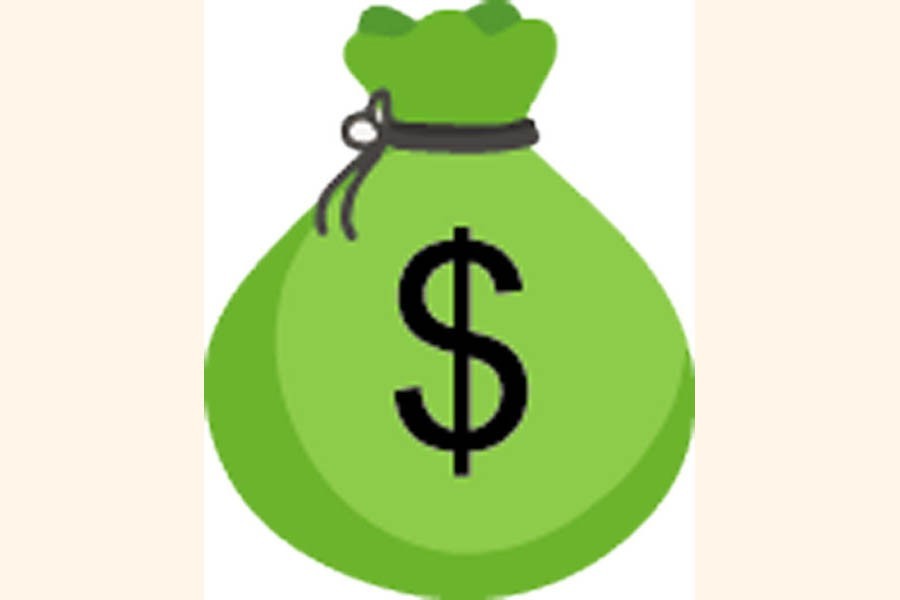Two specialized savings schemes in US dollar are now open for unlimited investment as the government withdraws the cap to forestall any greenback shortage under import-payment pressures.
However, officials say, the yields on the US Dollar Premium Bond and the US Dollar Investment Bond have been halved.
Expatriates can invest foreign currencies as much as they want from now on in the two dollar bonds, meant for enhancing Bangladesh's foreign-exchange reserves.
The maximum limit to investment in those bonds had been Tk 10 million since September 20, 2020.
The Internal Resources Division (IRD), under the Ministry of Finance (MoF), re-fixed the rates of return while lifting the maximum ceiling of investment on Monday.
The ceiling at Tk 10 million was a negligible amount in respect of foreign-currency earners, they add.
As per a circular from the IRD, signed by Deputy Secretary (saving) Dipak Kumar Biswas, rates of yield have been re-fixed on the basis of slabs of invested amounts.
Talking to the FE, Mr Biswas said following proposals of the expatriates and government high-ups the IRD reset the rates and withdrew the investment limit.
"The non-resident Bangladeshis or NRBs were facing difficulties to invest here," he adds. The rates of returns have been cut to ease government debt burden, now 38 per cent of GDP, which was also done with the consent of NRBs, he says.
For the three-year-term premium bond up to $0.1 million, rate of returns will be 4.50 per cent, 5.0 per cent and 5.50 per cent respectively for three consecutive years. Earlier, the yield rates were 6.50 per cent, 7.0 per cent, 7.50 per cent respectively.
Rates of returns would be 4.0 per cent, 4.50 per cent and 5.0 per cent for the dollar-denominated investment bond, having investment up to Tk 0.1 million, for three consecutive years against previous 5.50 per cent, 6.0 per cent and 6.50 per cent.
For investment above $0.1 million up to $0.5 million, rates of returns have been cut to 3.5 per cent, 4.0 per cent and 4.50 per cent for the premium bond and 3.0 per cent, 3.50 per cent and 4.0 per cent for the investment bond.
Rates of returns on investment of $ 0.5 million and above, yield rates would be 2.50 per cent, 3.0 per cent and 3.50 per cent for the premium and 2.0 per cent, 2.50 per cent and 3.0 per cent for the investment bond for three consecutive years.
As per the circular, effective from Monday, all of the previous investment would be counted at the time of interest payment of those two schemes as per new slabs.
However, the interest would be paid at the previous rates as per purchase agreement for the previously invested amount of the schemes.
The investment amount of those two schemes would be accounted for separately from other government saving schemes.
Returns on these two schemes and its report on transactions would be available both in USD and taka.
Md Kamrul Islam, director (finance and operation) of Cherry Button (a sister concern of D&J crop China), who was once an expatriate, welcomes the decision, despite yield cuts, meant for encouraging remittance-earners to invest back in the country.
"Wage-earners got demoralized after the fixing of the cap and they started encashing those bonds," he says.
It's a reciprocal decision of the government to ease pressure on country's balance of payments and combat possible crunch of USD as the schemes is also a contributor to the reserve dollars, he adds.
Cuts in rate of interest would not hurt the investors as first-time remittance-earners are entitled to the 2.0-per cent cash incentives, he opines.
Rate of returns on such long-term investment is not that much higher as developed countries see competitive rate turn to negative returns sometimes, he points out.
Currently, problem-stricken Sri Lanka is facing difficulties due to dollar shortage, he cites as an example to corroborate the contingency measure taken.
Wage-earners can invest in three types of government schemes. Of the schemes, limit on wage-earners' bond remains unchanged to Tk 10 million.
doulot_akter@yahoo.com


